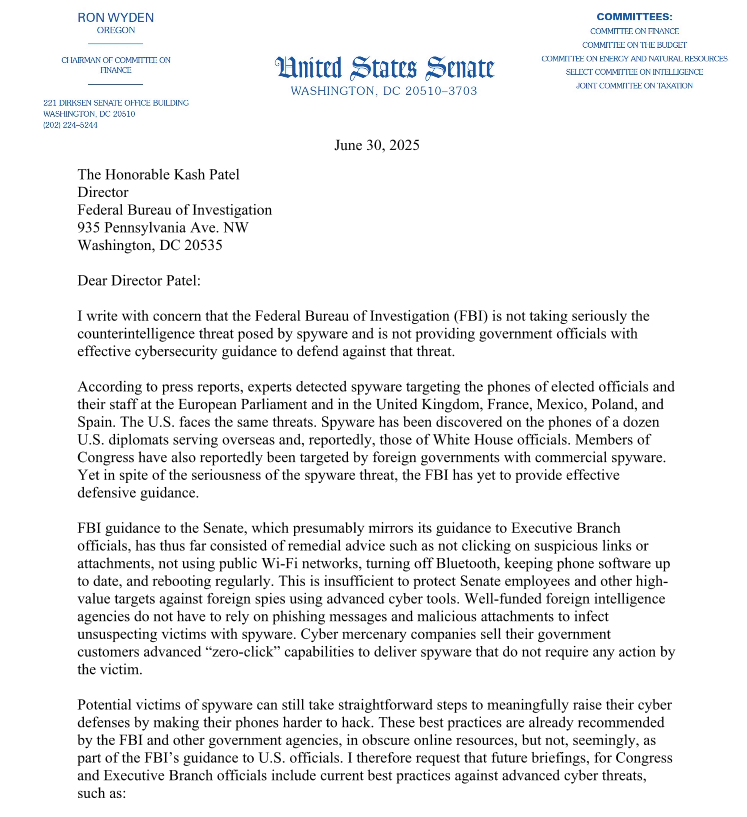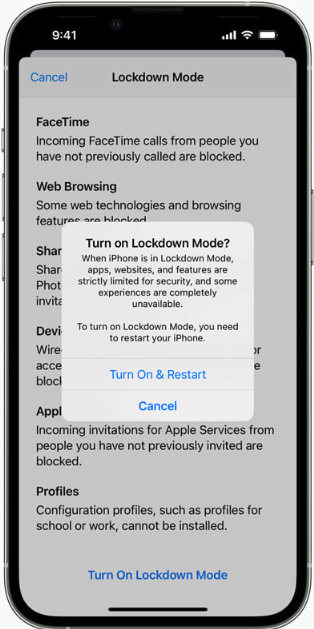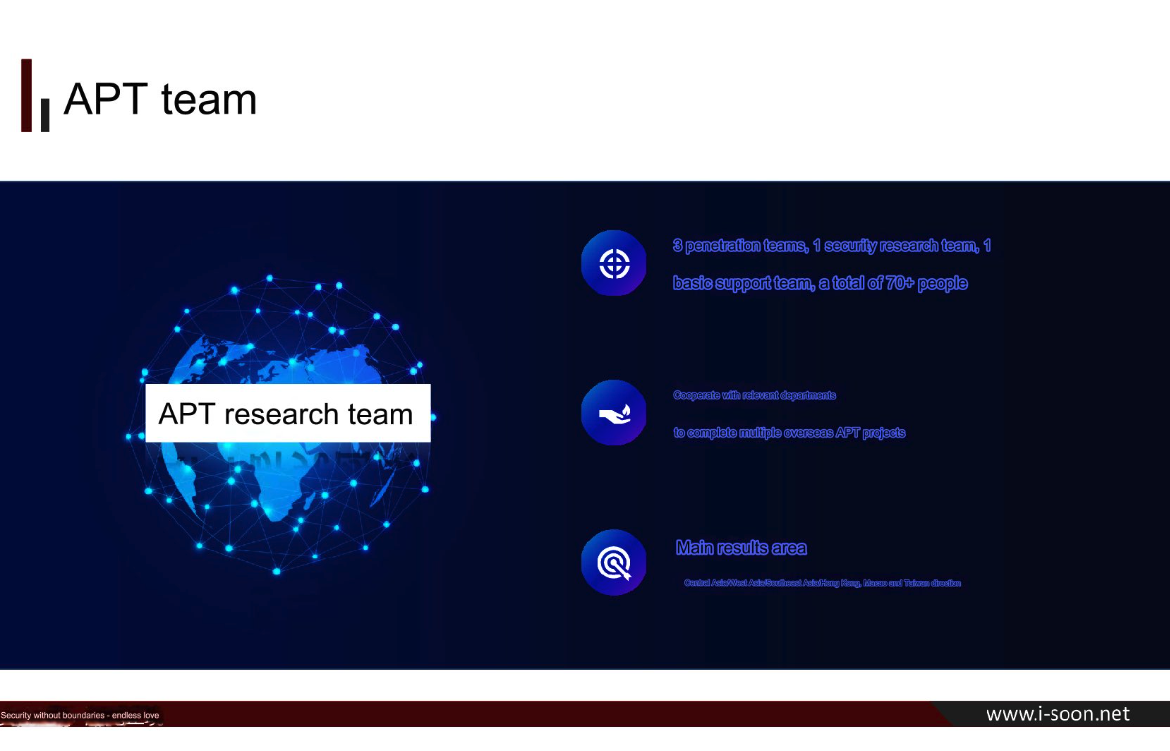Agents with the Federal Bureau of Investigation (FBI) briefed Capitol Hill staff recently on hardening the security of their mobile devices, after a contacts list stolen from the personal phone of the White House Chief of Staff Susie Wiles was reportedly used to fuel a series of text messages and phone calls impersonating her to U.S. lawmakers. But in a letter this week to the FBI, one of the Senate’s most tech-savvy lawmakers says the feds aren’t doing enough to recommend more appropriate security protections that are already built into most consumer mobile devices.

A screenshot of the first page from Sen. Wyden’s letter to FBI Director Kash Patel.
On May 29, The Wall Street Journal reported that federal authorities were investigating a clandestine effort to impersonate Ms. Wiles via text messages and in phone calls that may have used AI to spoof her voice. According to The Journal, Wiles told associates her cellphone contacts were hacked, giving the impersonator access to the private phone numbers of some of the country’s most influential people.
The execution of this phishing and impersonation campaign — whatever its goals may have been — suggested the attackers were financially motivated, and not particularly sophisticated.
“It became clear to some of the lawmakers that the requests were suspicious when the impersonator began asking questions about Trump that Wiles should have known the answers to—and in one case, when the impersonator asked for a cash transfer, some of the people said,” the Journal wrote. “In many cases, the impersonator’s grammar was broken and the messages were more formal than the way Wiles typically communicates, people who have received the messages said. The calls and text messages also didn’t come from Wiles’s phone number.”
Sophisticated or not, the impersonation campaign was soon punctuated by the murder of Minnesota House of Representatives Speaker Emerita Melissa Hortman and her husband, and the shooting of Minnesota State Senator John Hoffman and his wife. So when FBI agents offered in mid-June to brief U.S. Senate staff on mobile threats, more than 140 staffers took them up on that invitation (a remarkably high number considering that no food was offered at the event).
But according to Sen. Ron Wyden (D-Ore.), the advice the FBI provided to Senate staffers was largely limited to remedial tips, such as not clicking on suspicious links or attachments, not using public wifi networks, turning off bluetooth, keeping phone software up to date, and rebooting regularly.
“This is insufficient to protect Senate employees and other high-value targets against foreign spies using advanced cyber tools,” Wyden wrote in a letter sent today to FBI Director Kash Patel. “Well-funded foreign intelligence agencies do not have to rely on phishing messages and malicious attachments to infect unsuspecting victims with spyware. Cyber mercenary companies sell their government customers advanced ‘zero-click’ capabilities to deliver spyware that do not require any action by the victim.”
Wyden stressed that to help counter sophisticated attacks, the FBI should be encouraging lawmakers and their staff to enable anti-spyware defenses that are built into Apple’s iOS and Google’s Android phone software.
These include Apple’s Lockdown Mode, which is designed for users who are worried they may be subject to targeted attacks. Lockdown Mode restricts non-essential iOS features to reduce the device’s overall attack surface. Google Android devices carry a similar feature called Advanced Protection Mode.
Wyden also urged the FBI to update its training to recommend a number of other steps that people can take to make their mobile devices less trackable, including the use of ad blockers to guard against malicious advertisements, disabling ad tracking IDs in mobile devices, and opting out of commercial data brokers (the suspect charged in the Minnesota shootings reportedly used multiple people-search services to find the home addresses of his targets).
The senator’s letter notes that while the FBI has recommended all of the above precautions in various advisories issued over the years, the advice the agency is giving now to the nation’s leaders needs to be more comprehensive, actionable and urgent.
“In spite of the seriousness of the threat, the FBI has yet to provide effective defensive guidance,” Wyden said.
Nicholas Weaver is a researcher with the International Computer Science Institute, a nonprofit in Berkeley, Calif. Weaver said Lockdown Mode or Advanced Protection will mitigate many vulnerabilities, and should be the default setting for all members of Congress and their staff.
“Lawmakers are at exceptional risk and need to be exceptionally protected,” Weaver said. “Their computers should be locked down and well administered, etc. And the same applies to staffers.”
Weaver noted that Apple’s Lockdown Mode has a track record of blocking zero-day attacks on iOS applications; in September 2023, Citizen Lab documented how Lockdown Mode foiled a zero-click flaw capable of installing spyware on iOS devices without any interaction from the victim.

Earlier this month, Citizen Lab researchers documented a zero-click attack used to infect the iOS devices of two journalists with Paragon’s Graphite spyware. The vulnerability could be exploited merely by sending the target a booby-trapped media file delivered via iMessage. Apple also recently updated its advisory for the zero-click flaw (CVE-2025-43200), noting that it was mitigated as of iOS 18.3.1, which was released in February 2025.
Apple has not commented on whether CVE-2025-43200 could be exploited on devices with Lockdown Mode turned on. But HelpNetSecurity observed that at the same time Apple addressed CVE-2025-43200 back in February, the company fixed another vulnerability flagged by Citizen Lab researcher Bill Marczak: CVE-2025-24200, which Apple said was used in an extremely sophisticated physical attack against specific targeted individuals that allowed attackers to disable USB Restricted Mode on a locked device.
In other words, the flaw could apparently be exploited only if the attacker had physical access to the targeted vulnerable device. And as the old infosec industry adage goes, if an adversary has physical access to your device, it’s most likely not your device anymore.
I can’t speak to Google’s Advanced Protection Mode personally, because I don’t use Google or Android devices. But I have had Apple’s Lockdown Mode enabled on all of my Apple devices since it was first made available in September 2022. I can only think of a single occasion when one of my apps failed to work properly with Lockdown Mode turned on, and in that case I was able to add a temporary exception for that app in Lockdown Mode’s settings.
My main gripe with Lockdown Mode was captured in a March 2025 column by TechCrunch’s Lorenzo Francheschi-Bicchierai, who wrote about its penchant for periodically sending mystifying notifications that someone has been blocked from contacting you, even though nothing then prevents you from contacting that person directly. This has happened to me at least twice, and in both cases the person in question was already an approved contact, and said they had not attempted to reach out.
Although it would be nice if Apple’s Lockdown Mode sent fewer, less alarming and more informative alerts, the occasional baffling warning message is hardly enough to make me turn it off.
A new data leak that appears to have come from one of China’s top private cybersecurity firms provides a rare glimpse into the commercial side of China’s many state-sponsored hacking groups. Experts say the leak illustrates how Chinese government agencies increasingly are contracting out foreign espionage campaigns to the nation’s burgeoning and highly competitive cybersecurity industry.

A marketing slide deck promoting i-SOON’s Advanced Persistent Threat (APT) capabilities.
A large cache of more than 500 documents published to GitHub last week indicate the records come from i-SOON, a technology company headquartered in Shanghai that is perhaps best known for providing cybersecurity training courses throughout China. But the leaked documents, which include candid employee chat conversations and images, show a less public side of i-SOON, one that frequently initiates and sustains cyberespionage campaigns commissioned by various Chinese government agencies.
The leaked documents suggest i-SOON employees were responsible for a raft of cyber intrusions over many years, infiltrating government systems in the United Kingdom and countries throughout Asia. Although the cache does not include raw data stolen from cyber espionage targets, it features numerous documents listing the level of access gained and the types of data exposed in each intrusion.
Security experts who reviewed the leaked data say they believe the information is legitimate, and that i-SOON works closely with China’s Ministry of Public Security and the military. In 2021, the Sichuan provincial government named i-SOON as one of “the top 30 information security companies.”
“The leak provides some of the most concrete details seen publicly to date, revealing the maturing nature of China’s cyber espionage ecosystem,” said Dakota Cary, a China-focused consultant at the security firm SentinelOne. “It shows explicitly how government targeting requirements drive a competitive marketplace of independent contractor hackers-for-hire.”
Mei Danowski is a former intelligence analyst and China expert who now writes about her research in a Substack publication called Natto Thoughts. Danowski said i-SOON has achieved the highest secrecy classification that a non-state-owned company can receive, which qualifies the company to conduct classified research and development related to state security.
i-SOON’s “business services” webpage states that the company’s offerings include public security, anti-fraud, blockchain forensics, enterprise security solutions, and training. Danowski said that in 2013, i-SOON established a department for research on developing new APT network penetration methods.
APT stands for Advanced Persistent Threat, a term that generally refers to state-sponsored hacking groups. Indeed, among the documents apparently leaked from i-SOON is a sales pitch slide boldly highlighting the hacking prowess of the company’s “APT research team” (see screenshot above).

i-SOON CEO Wu Haibo, in 2011. Image: nattothoughts.substack.com.
The leaked documents included a lengthy chat conversation between the company’s founders, who repeatedly discuss flagging sales and the need to secure more employees and government contracts. Danowski said the CEO of i-SOON, Wu Haibo (“Shutdown” in the leaked chats) is a well-known first-generation red hacker or “Honker,” and an early member of Green Army — the very first Chinese hacktivist group founded in 1997. Mr. Haibo has not yet responded to a request for comment.
In October 2023, Danowski detailed how i-SOON became embroiled in a software development contract dispute when it was sued by a competing Chinese cybersecurity company called Chengdu 404. In September 2020, the U.S. Department of Justice unsealed indictments against multiple Chengdu 404 employees, charging that the company was a facade that hid more than a decade’s worth of cyber intrusions attributed to a threat actor group known as “APT 41.”
Danowski said the existence of this legal dispute suggests that Chengdu 404 and i-SOON have or at one time had a business relationship, and that one company likely served as a subcontractor to the other.
“From what they chat about we can see this is a very competitive industry, where companies in this space are constantly poaching each others’ employees and tools,” Danowski said. “The infosec industry is always trying to distinguish [the work] of one APT group from another. But that’s getting harder to do.”
It remains unclear if i-SOON’s work has earned it a unique APT designation. But Will Thomas, a cyber threat intelligence researcher at Equinix, found an Internet address in the leaked data that corresponds to a domain flagged in a 2019 Citizen Lab report about one-click mobile phone exploits that were being used to target groups in Tibet. The 2019 report referred to the threat actor behind those attacks as an APT group called Poison Carp.
Several images and chat records in the data leak suggest i-SOON’s clients periodically gave the company a list of targets they wanted to infiltrate, but sometimes employees confused the instructions. One screenshot shows a conversation in which an employee tells his boss they’ve just hacked one of the universities on their latest list, only to be told that the victim in question was not actually listed as a desired target.
The leaked chats show i-SOON continuously tried to recruit new talent by hosting a series of hacking competitions across China. It also performed charity work, and sought to engage employees and sustain morale with various team-building events.
However, the chats include multiple conversations between employees commiserating over long hours and low pay. The overall tone of the discussions indicates employee morale was quite low and that the workplace environment was fairly toxic. In several of the conversations, i-SOON employees openly discuss with their bosses how much money they just lost gambling online with their mobile phones while at work.
Danowski believes the i-SOON data was probably leaked by one of those disgruntled employees.
“This was released the first working day after the Chinese New Year,” Danowski said. “Definitely whoever did this planned it, because you can’t get all this information all at once.”
SentinelOne’s Cary said he came to the same conclusion, noting that the Protonmail account tied to the GitHub profile that published the records was registered a month before the leak, on January 15, 2024.
China’s much vaunted Great Firewall not only lets the government control and limit what citizens can access online, but this distributed spying apparatus allows authorities to block data on Chinese citizens and companies from ever leaving the country.
As a result, China enjoys a remarkable information asymmetry vis-a-vis virtually all other industrialized nations. Which is why this apparent data leak from i-SOON is such a rare find for Western security researchers.
“I was so excited to see this,” Cary said. “Every day I hope for data leaks coming out of China.”
That information asymmetry is at the heart of the Chinese government’s cyberwarfare goals, according to a 2023 analysis by Margin Research performed on behalf of the Defense Advanced Research Projects Agency (DARPA).
“In the area of cyberwarfare, the western governments see cyberspace as a ‘fifth domain’ of warfare,” the Margin study observed. “The Chinese, however, look at cyberspace in the broader context of information space. The ultimate objective is, not ‘control’ of cyberspace, but control of information, a vision that dominates China’s cyber operations.”
The National Cybersecurity Strategy issued by the White House last year singles out China as the biggest cyber threat to U.S. interests. While the United States government does contract certain aspects of its cyber operations to companies in the private sector, it does not follow China’s example in promoting the wholesale theft of state and corporate secrets for the commercial benefit of its own private industries.
Dave Aitel, a co-author of the Margin Research report and former computer scientist at the U.S. National Security Agency, said it’s nice to see that Chinese cybersecurity firms have to deal with all of the same contracting headaches facing U.S. companies seeking work with the federal government.
“This leak just shows there’s layers of contractors all the way down,” Aitel said. “It’s pretty fun to see the Chinese version of it.”